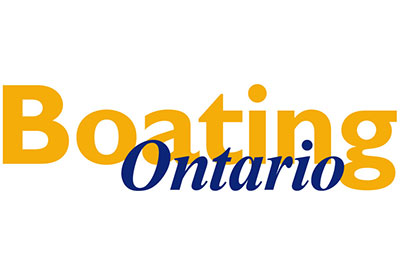THE CHANGING WORKPLACES REVIEW IN ONTARIO

June 5, 2017
Boating Ontario Association is keeping its members informed on the recent announcement by Ontario Premier Wynne proposed changes to the Employment Standards Act and the Labour Relations Act, including adjustments to minimum wage.
Summary of Changes Affecting Marine Industry:
- Increasing the general minimum wage to $14 per hour on Jan. 1, 2018, and $15 per hour on Jan. 1, 2019. Special minimum wage rates for liquor servers, students under 18, hunting and fishing guides and homeworkers will be maintained, and will increase by the same percentage as the general minimum wage, on the same dates.
- Equal pay for equal work provisions for casual, part-time, temporary and seasonal employees. Proposed changes would ensure casual, part-time, temporary and seasonal employees are paid at the same rate as full-time employees when performing the same job for the same employer. Exemptions would apply where wage differences are based on seniority, merit, or systems that determine pay based on production quantity or quality. If passed, these provisions would go into effect on April 1, 2018.
- New rules for scheduling, which if passed, would go into effect on Jan. 1, 2019. Rules encompass employees’ rights to request schedule or location without fear of reprisal, and to refuse or accept shifts without repercussion if given less than four days notice. Employees who regularly work more than three hours a day but are given less than three hours upon reporting to work, or employees who are “on-call” and are not called into work, must be paid three hours at the regular rate of pay.
- Changes to overtime pay, which if passed would come into force on Jan. 1, 2018. An employee who holds more than one position with an employer, and who is working overtime, must be paid at the rate for the position they are working overtime for.
- Penalties for employers who misclassify employees as “independent contractors”, which would come into effect upon the amended Act receiving Royal Assent. Penalties would include prosecution, monetary penalties and public disclosure of conviction.
- Employees are entitled to three weeks of paid vacation time after five years of service with the same employer. If passed, proposed legislation would come into effect on Jan. 1, 2018.
- Proposed changes to simplify the formula for calculating public holiday pay, which if passed, would come into affect Jan. 1, 2018.
- Personal Emergency Leave (PEL) is expanded to apply to all employers, and not just those with 50 or more employees. All employees would be entitled to 10 PEL days per year, two of which would be paid PEL days. If passed, proposed changes would come into effect on Jan. 1, 2018.
- Employees are no longer required to contact their employer before filing a claim under the ESA. Furthermore, the Director of Employment Standards would no longer be able to refuse to assign an Employment Standards Officer to investigate a claim due to insufficient information from the claimant. These proposed changes would come into force on Jan. 1, 2018.
- Increased maximum penalties for employers that do not comply with the ESA. Maximum penalties would increase from $250, $500 and $1000 to $350, $700 and $1500, respectively. Proposed changes would also allow the Director of Employment Standards to publish names of individuals that have been issued a penalty, a description of the violation and the amount of the penalty. If passed, these changes would come into effect on Jan. 1, 2018.
- Electronic agreements between employers and employees can serve as agreements in writing. If passed, this provision would come into effect on Jan. 1, 2018.
In order to gain feedback from a wide audience, the government is sending the draft legislation to the Standing Committee after its first reading.
The Keep Ontario Working Coalition– in which the Tourism Industry Association of Ontario(TAIO) represents Boating Ontario Association —released a statement yesterday, urging the province to consider the economic impact of these changes on Ontario businesses.
To read the Government of Ontario’s press release announcing proposed changes, click here. To view a summary of proposed changes, click here. To read more about the Changing Workplaces Review, click here.
If further actions are taken we will keep you informed. Until then, if you have any questions or concerns to share with Boating Ontario please feel free to email Janet O’Connell directly at joconnell@BoatingOntario.ca



























